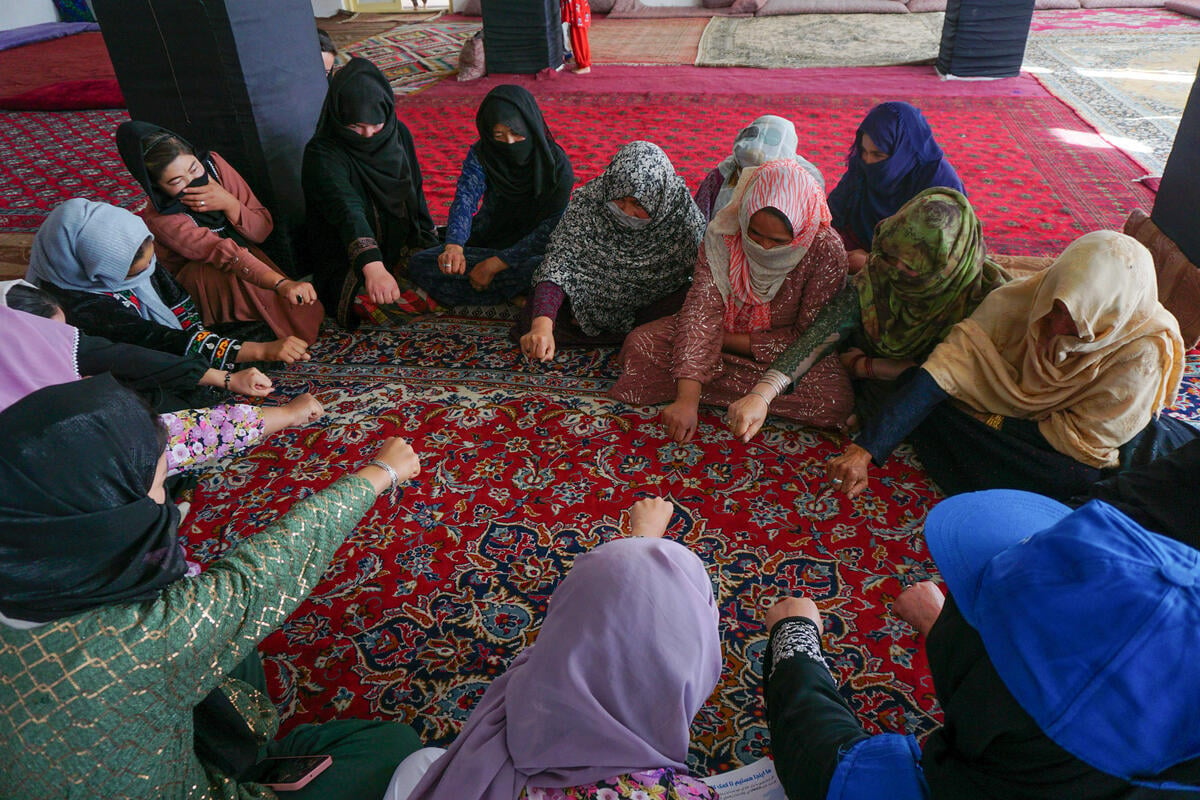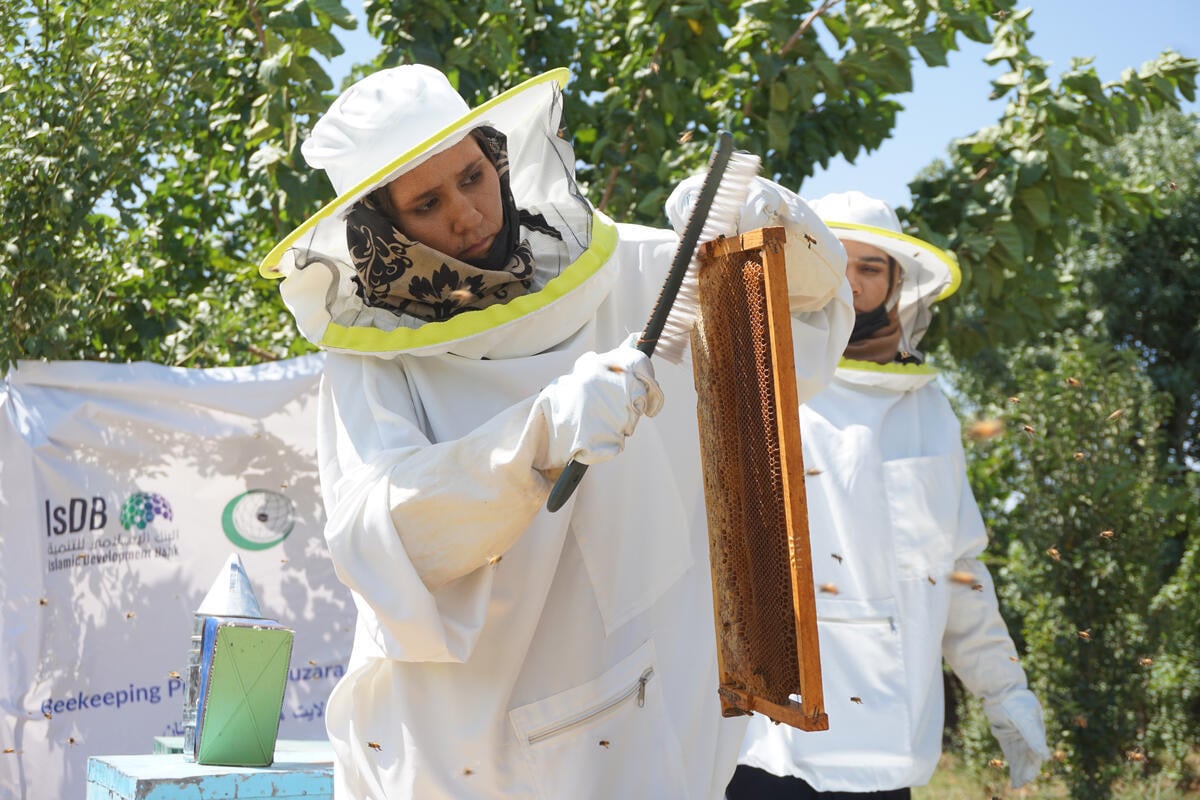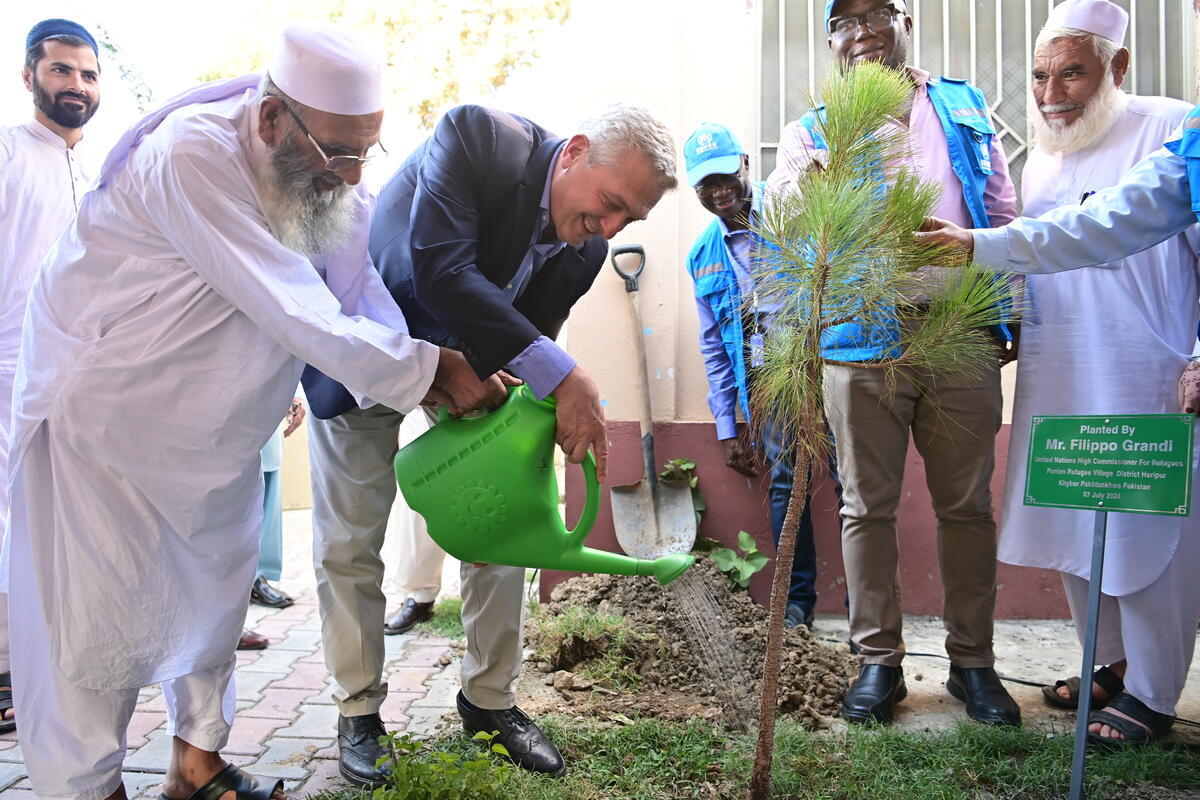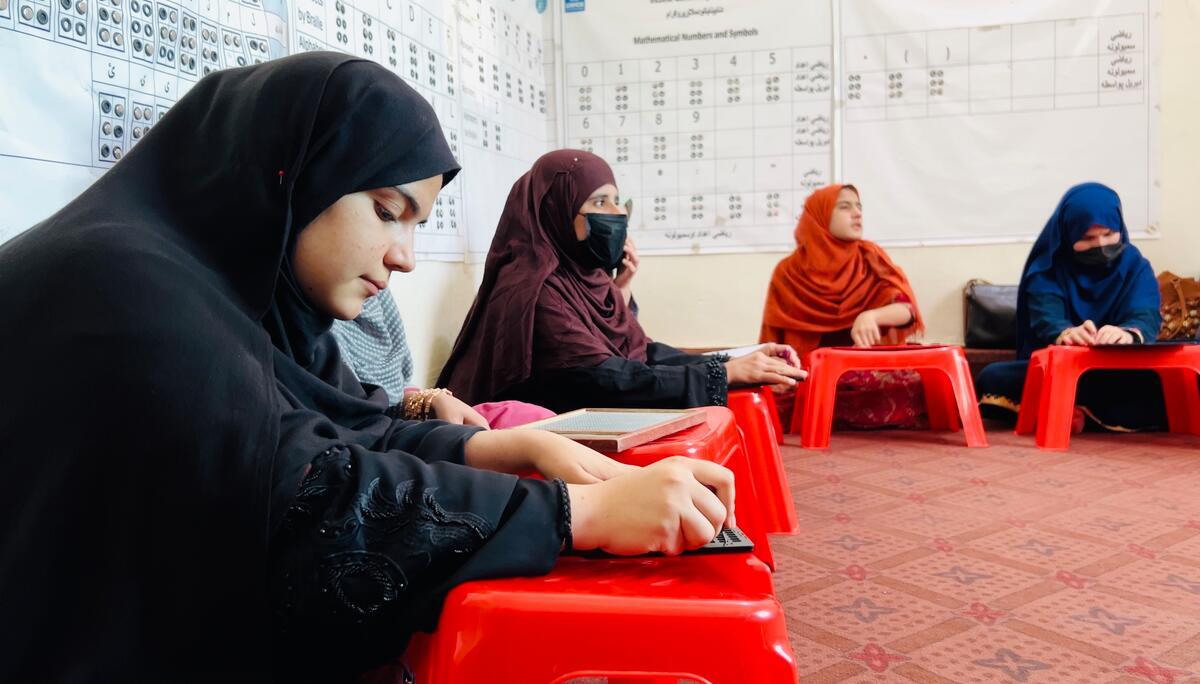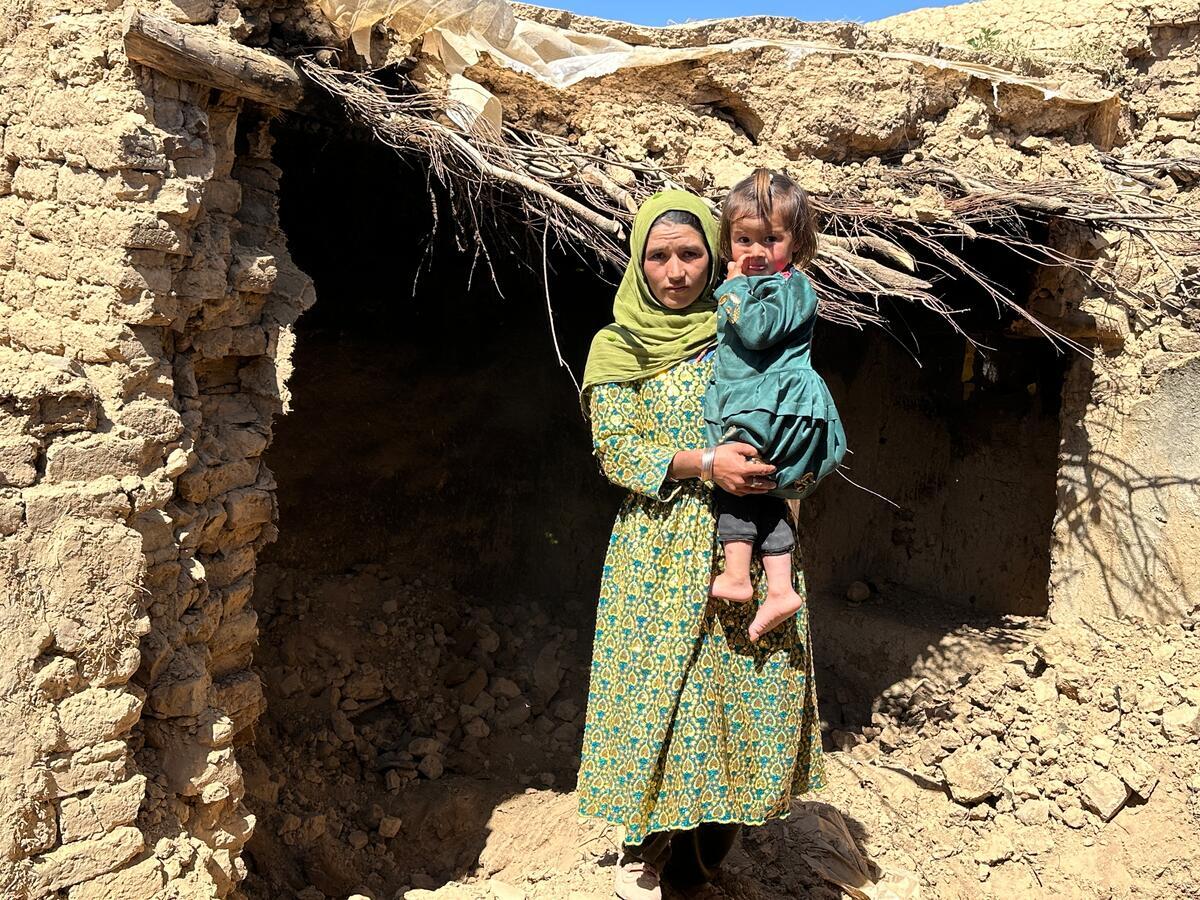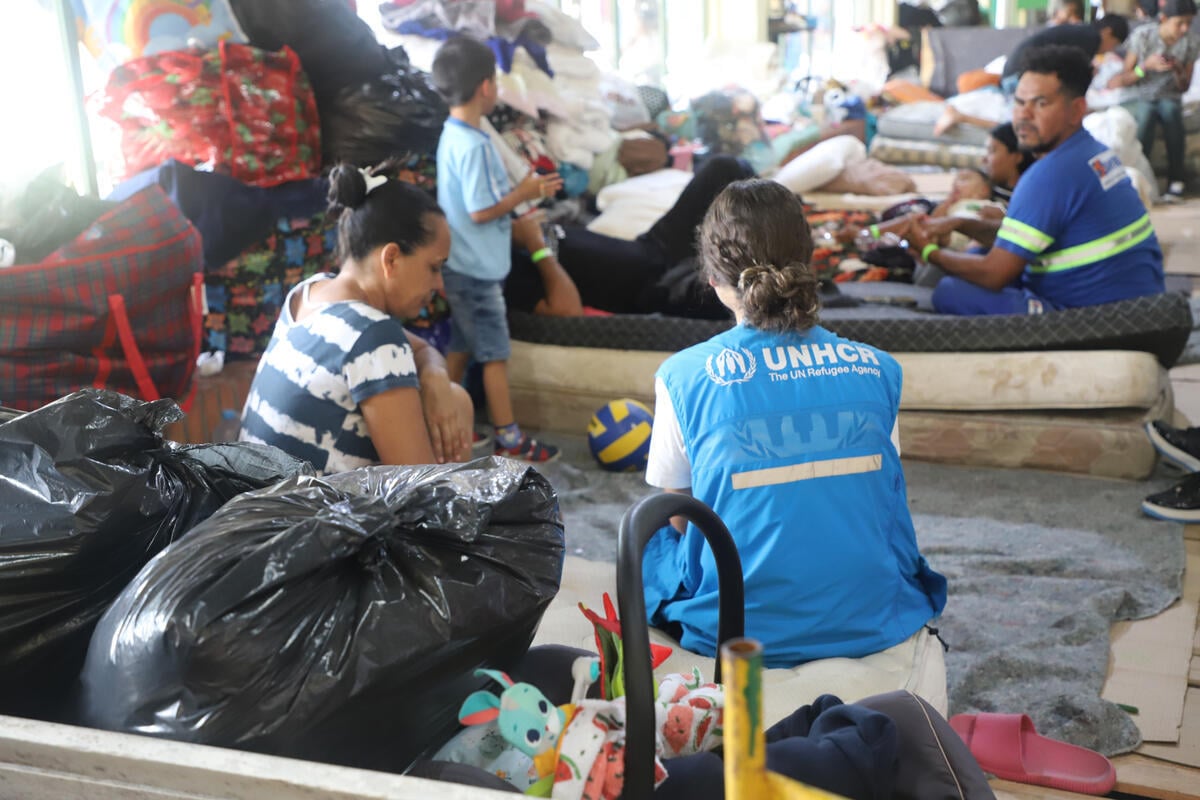Kacha Garhi refugee camp closes in Pakistan after 27 years
Kacha Garhi refugee camp closes in Pakistan after 27 years

PESHAWAR, Pakistan, July 27 (UNHCR) - One of the oldest and largest Afghan refugee camps in Pakistan has closed, with the last residents leaving for Afghanistan. The closure comes after two years of negotiations, and sets the tone for future camp closures.
Set up in 1980, Kacha Garhi camp was located in the heart of Hayatabad, part of Peshawar, the capital of Pakistan's North-West Frontier Province. More than 64,000 Afghans were registered in a recent government exercise in the camp, making it the fourth-largest camp countrywide - after Jalozai, Old Shamshatoo and Panian camps in NWFP.
The decision to close Kacha Garhi camp was taken in 2006. It was one of four camps the governments of Pakistan, Afghanistan and UNHCR agreed to close, mainly for security reasons. But in Kacha Garhi's case, the authorities wanted to free up prime land for urban development.
As with the other three camps, the residents of Kacha Garhi were given two options: to voluntarily repatriate with UNHCR assistance averaging US$100 per person, or to relocate to an existing camp in Pakistan for those who do not wish to repatriate.
UNHCR's long-standing position is that repatriation must be truely voluntary and gradual. The free and informed decision of Afghans to return is the single most important contributing factor to their successful reintegration in Afghanistan.
By the time Kacha Garhi was closed on 26 July, some 37,000 registered Afghans had been assisted back to Afghanistan by UNHCR. Some 96 percent of Kacha Garhi's residents hail from Afghanistan's eastern and central provinces of Nangarhar, Laghman, Kabul and Logar.
No one opted for relocation to government-designated camps in Dir and Chitral in northern NWFP. Repatriating Afghans cited the remote location of the alternative camps, their lack of basic infrastructure and the limited possibilities for livelihoods as reasons for their decisions.
"I spent a major part of my life in Kacha Garhi, I married here and now I am the father of seven children," said Abdul Malik, 36, a motor mechanic. "My relatives and I have never been to Dir and Chitral before. I think it is quite difficult to start life from scratch. We prefer to return to our homeland. Even if the camp had not closed, I had decided to repatriate. After all, for how long can we live like refugees? When a person leaves his home, he has to go back one day."
Not everyone shared his view, which explains why it took two years to negotiate the camp closure. Located near Peshawar's major markets and industries, Kacha Garhi was a hub of trading and transport services. Local news reports put the market value of refugees' assets in the camp at the equivalent of about 740 million Pakistani Rupees (over US$12 million). Businessmen refused to leave, and reportedly sent delegations to lobby in Kabul.
However, it soon became clear the government was serious about closing the camp this year. Shuras were held with refugee elders to inform them about their options, and agreement was finally reached on a peaceful resolution to camp closure.
"The peaceful closure of Kacha Garhi camp has set a very good example," said Faridullah Jan, the Additional Commissioner of the Commissionerate of Afghan Refugees in NWFP. "The deadline [of June 30] was extended several times to ensure that the refugees took a voluntary decision. We are glad that the camp closed without any unpleasant incident."
What remains of Kacha Garhi today are the mud walls after which the camp is named. Most of the repatriating families had dismantled their houses and taken the wooden beams and doors to rebuild their homes in Afghanistan. Large portions of the deserted camp have been bulldozed by the authorities.
Fatima, a 45-year-old mother of four from Baghlan province, was among the last families to leave the camp. "We did not want to go back but had to dismantle our house as we were the only ones left in our compound and the rest had already repatriated," she said. "We could not go to Dir or Chitral to start a new life as it was not feasible for us. I decided to repatriate because we could not afford to rent a house in Peshawar."
She repatriated with her brother and extended family. "My husband is not returning with us," she explained. "He will settle us in Kabul, then come back to Pakistan as he is working as a fruit seller and earns a good income."
Guenet Guebre-Christos, the UN refugee agency's Representative in Pakistan, welcomed the camp's peaceful closure. "We hope the other camp closures will follow the same approach, that open dialogue will continue," she said.
By Rabia Ali in Peshawar, Pakistan

